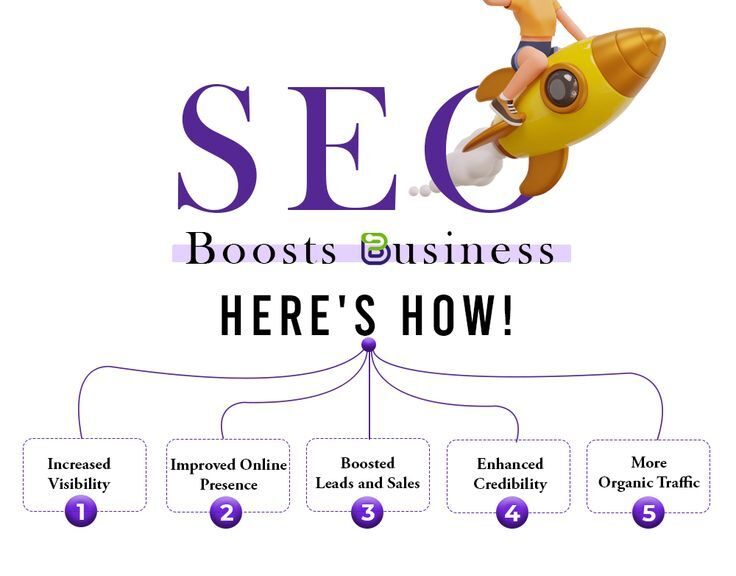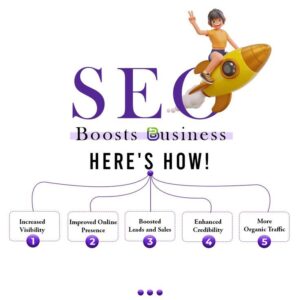SEO strategy for new websites In today’s digital-first world, launching a website is just the beginning. For new businesses, your website is your storefront, sales funnel, and brand ambassador—all rolled into one. But without search engine optimization (SEO), your site may go unnoticed by the very audience you aim to serve. Implementing a strong SEO strategy from the start is crucial for long-term visibility, credibility, and business growth. SEO strategy for new websites
In this post, we’ll explore why SEO matters for new websites, the key components of an effective strategy, and how investing in SEO early can give your business a competitive edge.
Why SEO Is Crucial for New Websites
1. Builds Organic Visibility
When people search for products or services online, they typically start with Google. If your site isn’t optimized to appear in search results, you miss the opportunity to connect with potential customers. SEO helps you rank for relevant keywords, increasing the chances that users find your website organically—without the need for paid ads.
2. Establishes Brand Credibility
Appearing on the first page of Google is often seen as a vote of confidence by users. A well-optimized site signals trustworthiness, relevance, and authority. New websites especially need this credibility to compete with established brands.
3. Drives High-Quality Traffic
Unlike traditional advertising, SEO brings in users actively looking for solutions. These users are often further down the sales funnel, which makes them more likely to convert. A solid SEO strategy ensures you’re attracting the right audience, not just more traffic. SEO strategy for new websites
Key Elements of an SEO Strategy for New Websites
Building a successful SEO foundation involves more than just keyword stuffing or adding meta tags. Here’s a breakdown of the most important components:
1. Keyword Research: Know What Your Audience Is Searching For
Every strong SEO strategy starts with keyword research. Identify the words and phrases your potential customers are using to search for your products, services, or industry.
Tools to use:
-
Google Keyword Planner
-
Site audits
-
SEMrush
-
Keyword research
Tips:
-
Focus on long-tail keywords (e.g., “best budget project management software”) for lower competition and higher intent.
-
Group keywords by search intent: informational, navigational, commercial, or transactional.
2. On-Page SEO: Optimize Your Content and HTML
On-page SEO refers to all the elements you can control directly on your website. This includes:
-
Title tags and meta descriptions: Include primary keywords and stay within character limits.
-
Headings (H1-H6): Structure your content clearly.
-
URL structure: Keep URLs clean, short, and keyword-rich.
-
Internal linking: Help search engines and users navigate your site.
-
Image optimization: Use descriptive file names and alt tags.
Pro Tip: Always prioritize user experience. Google rewards content that’s easy to read, well-structured, and informative.
3. High-Quality Content: The Core of SEO Success
Google’s algorithms are designed to deliver the most relevant and helpful content to users. That means content is king—especially for new websites.
What makes content high-quality?
-
Originality
-
Expertise and authority
-
Answers to user queries
-
Use of multimedia (images, videos, infographics)
-
Proper keyword usage (without stuffing)
Content ideas for new websites:
-
Blog posts
-
How-to guides
-
FAQs
-
Case studies
-
Product or service comparisons
4. Technical SEO: Make Sure Your Site Performs
Technical SEO ensures that your site is accessible to both users and search engines. If your site isn’t crawlable, indexable, or mobile-friendly, all other SEO efforts may fall short. SEO strategy for new websites
Key areas to check:
-
Mobile responsiveness
-
Fast loading speed
-
SSL certificate (HTTPS)
-
XML sitemap and robots.txt file
-
Canonical URLs to prevent duplicate content
Use tools like Google Search Console and PageSpeed Insights to identify and fix technical issues.
5. Off-Page SEO: Build Authority and Trust
Off-page SEO refers to actions taken outside of your website to impact your rankings—primarily through backlinks.
Why backlinks matter:
-
They serve as endorsements from other websites.
-
They improve domain authority.
-
They drive referral traffic.
How to get backlinks:
-
Guest posting
-
Outreach to bloggers and influencers
-
Submitting your site to online directories
-
Creating share-worthy content (e.g., data studies, infographics)
Common SEO Mistakes New Websites Make (and How to Avoid Them)
-
Ignoring SEO from Day One
Waiting too long to implement SEO means missing valuable indexing and ranking opportunities. -
Over-Optimizing
Keyword stuffing or using unnatural language can hurt your rankings. -
Using Duplicate Content
Copying from competitors or using the same content across multiple pages signals poor quality to search engines. -
Neglecting Mobile Optimization
With mobile-first indexing, a poor mobile experience can tank your rankings. -
Not Tracking Progress
If you’re not using tools like Google Analytics or Search Console, you’re flying blind.
How SEO Fuels Long-Term Business Growth
1. Compounding ROI
Unlike paid ads, SEO efforts grow over time. A blog post you publish today can generate leads and sales for years if properly optimized.
2. Sustainable Lead Generation
With SEO, you’re not constantly paying for traffic. Organic leads keep coming in even when your ad budget dries up.
3. Competitive Edge
Starting SEO early gives you an edge over competitors who may be relying solely on paid marketing or neglecting their organic strategy.
4. Customer Insights
SEO tools provide data on user behavior, search intent, and engagement—valuable intel for refining your marketing and product strategies.



